
Politics
14:39, 16-Dec-2017
Bitcoin, bunnies to resolve crisis, Venezuela talks resume January
By Jasmine Cen
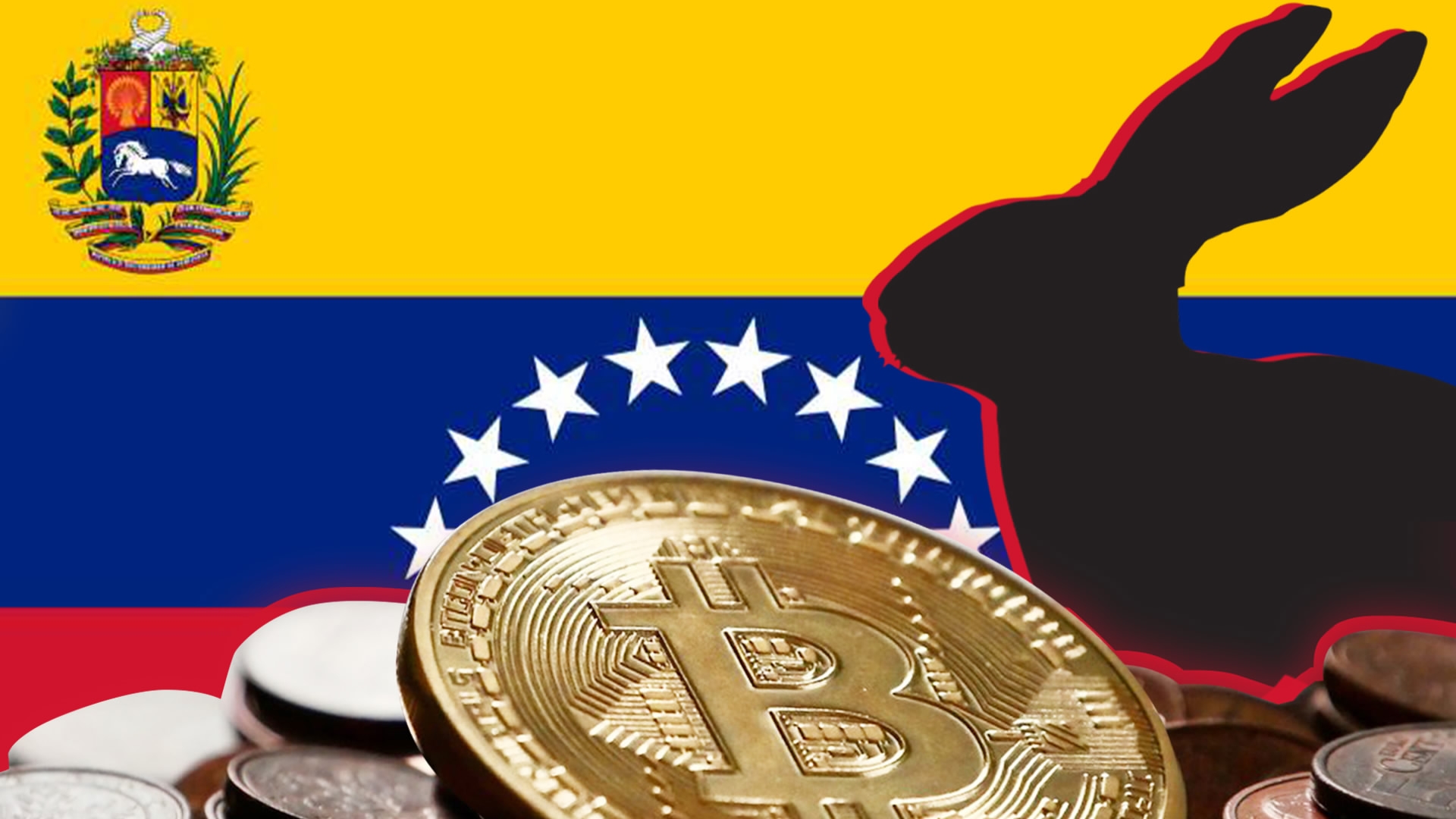
Economic problems and US sanctions pushed the Venezuelan government back to the table to continue negotiating a resolution with the opposition, but the meeting ended on Friday with no agreement reached again.
Gathered at the Foreign Ministry Building at Santo Domingo, capital of the Dominican Republic, representatives from Bolivia, Chile, Mexico, Nicaragua and St. Vincent and the Grenadines, as well as former Spanish Prime Minister Jose Luis Zapatero, observed the talks.
"Of the six points of agreement, of the six agenda points that we've been discussing for a while now, we've advanced quite a bit," said Venezuelan government representative, Jorge Rodriguez.
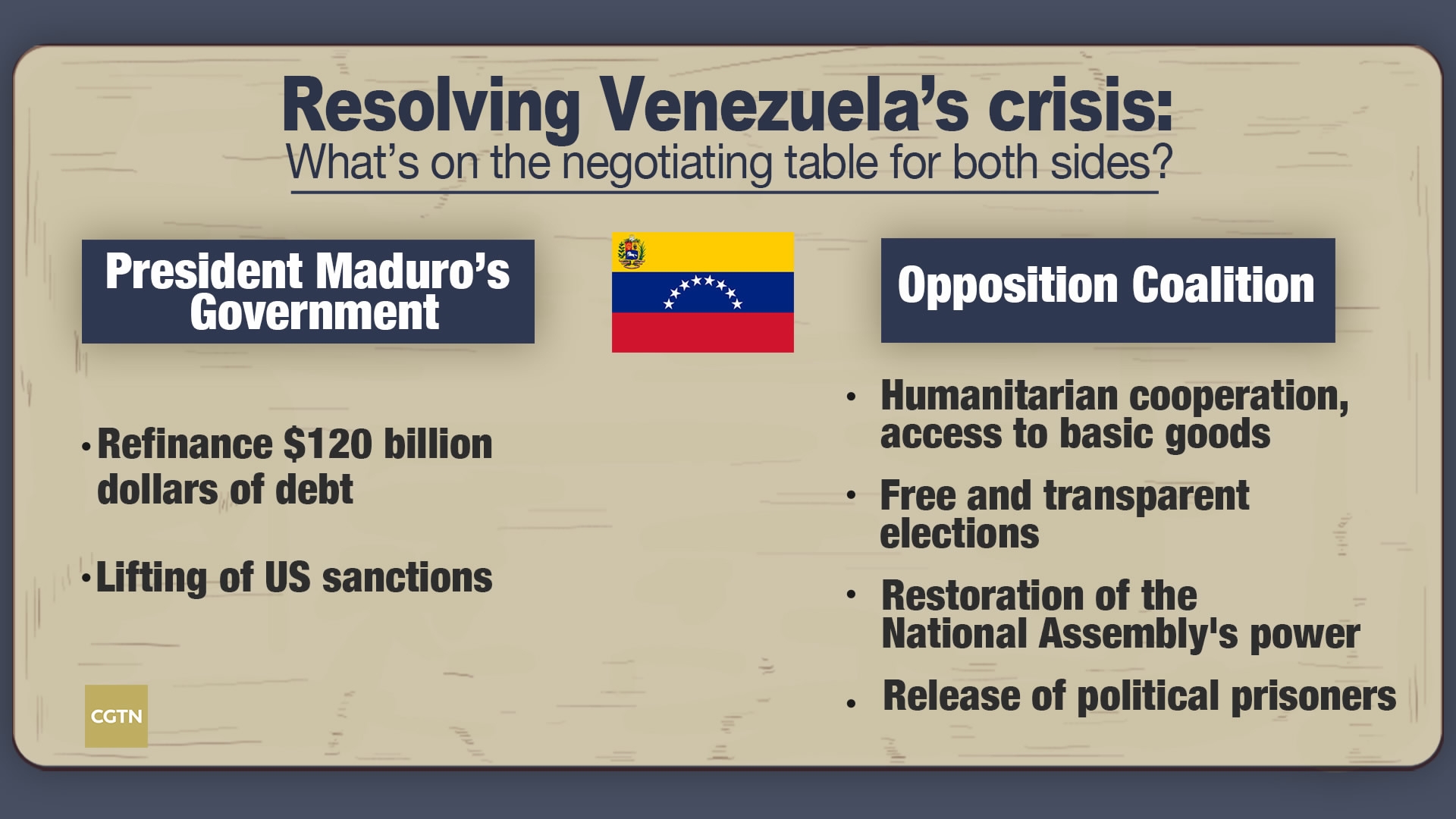
This is the second meeting scheduled between President Nicholas Maduro’s ruling Socialist Party and the opposition coalition since the anti-government protests collapsed in July, resulting in 120 detained and thousands arrested.
However, analysts are not optimistic about the negotiation outcome. There was no major agreement reached at the two-day meetings, which ended on December 2 and were termed "significant advances."
“Major near-term breakthroughs remain unlikely given the complexity of issues on the table and the distance between each side’s preferences,” said Eurasia group consultancy.
A new round of talk is scheduled on January 11, 2018.
US threatens to impose sanctions
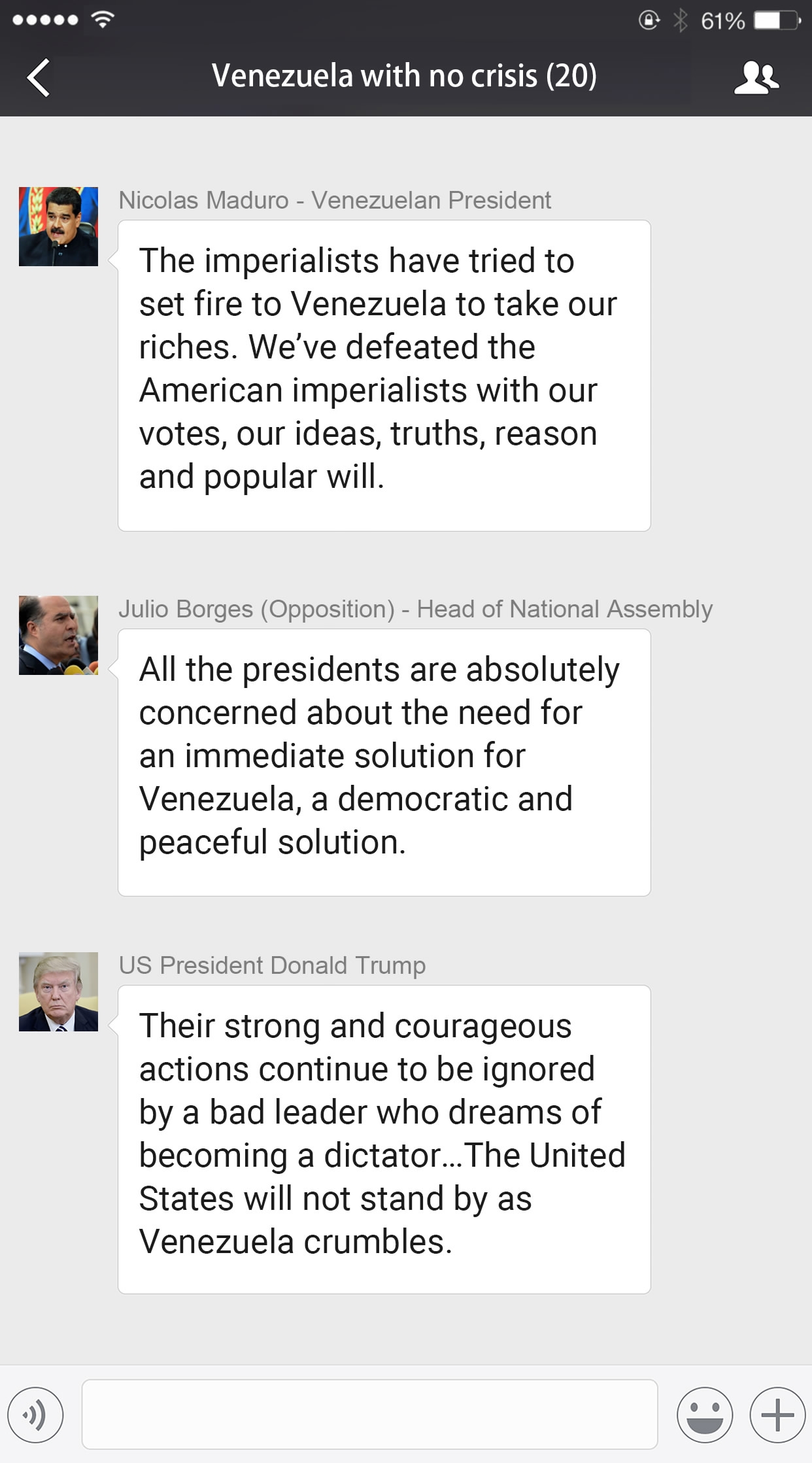
To get around US sanctions, Maduro looks to make any deal with the opposition-led Congress to approve negotiation with the bondholders to refinance its 120 billion US dollars foreign debt.
The government has blamed US for failed statist policies and a plunge in global oil prices, while it hopes advancements during the talks can help remove US government and the European Union sanctions.
‘Petro’, a national cryptocurrency system
“Petro”, a digital currency, was announced by President Maduro in a desperate bid to avoid US sanctions, as Venezuela’s bolivar has almost lost its validity, due to the shortage of cash and rapid decline of its value.
The popularity of Bitcoin has surged throughout the year and the cryptocurrency has rapidly been utilized as a new medium of exchange and store of value, but the government is not too keen on Bitcoin or other cryptocurrencies and asks individuals to register with the authorities before mining.
A cryptocurrency is a kind of virtual money that used encryption to avoid intermediation of the third party.
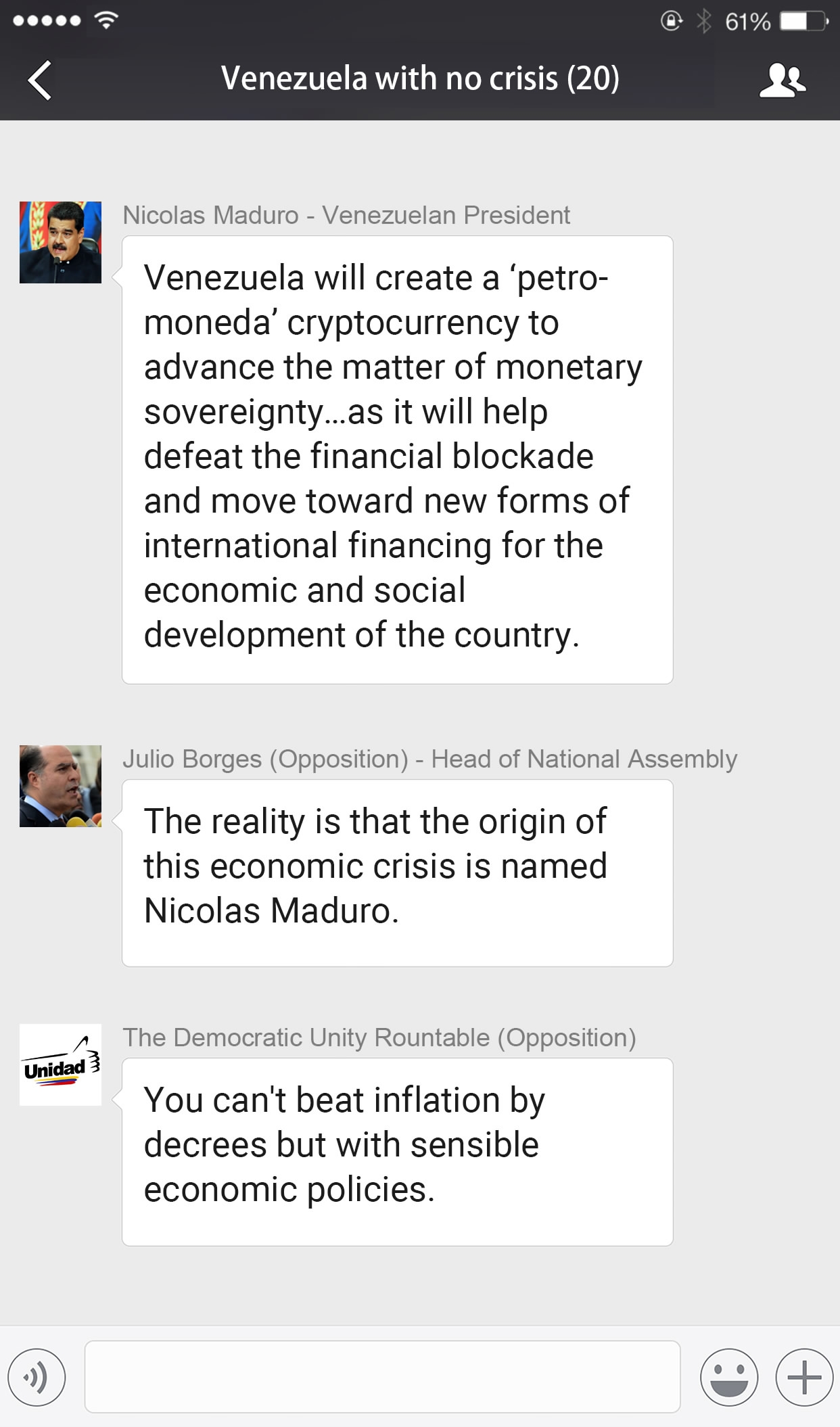
To resolve the economic crisis, the core challenges the new currency faced was trust issue from the domestic and international community – however, a new currency might lead to a new cycle of hyperinflation, said experts.
The economic downfall was rooted in Venezuela’s dependency on oil as it is only source of revenue. Prices have plunged since 2014. Oil prices were over 100 US dollars a barrel in 2014 and dropped to around 50 US dollars in 2016.
David Smilde, a scholar of Venezuela at Tulane University, sees value in selling the idea.
“Most likely they are trying to find a clever way to borrow money against future production of oil, natural gas, and gold, which is controversial and arguably unconstitutional,” he says in the interview with Vox. “But the Maduro government has found that fooling some of the people all of the time is enough for them to stay in power.”
Fight hunger by breeding rabbits
Despite crashing revenue, the government continues to impose strict currency control on goods sold in supermarkets. Until late 2016, commodities returned to the shelves, but few residents were able to afford the basic goods.
Hospitals are falling apart as medical supplies are also in short supply, causing widespread deaths.
To solve the scarcity problem and battle hunger, the “Rabbit Plan” is an effort announced in September by President Maduro to boost food availability. Authorities also taught citizens to plant food in their homes.
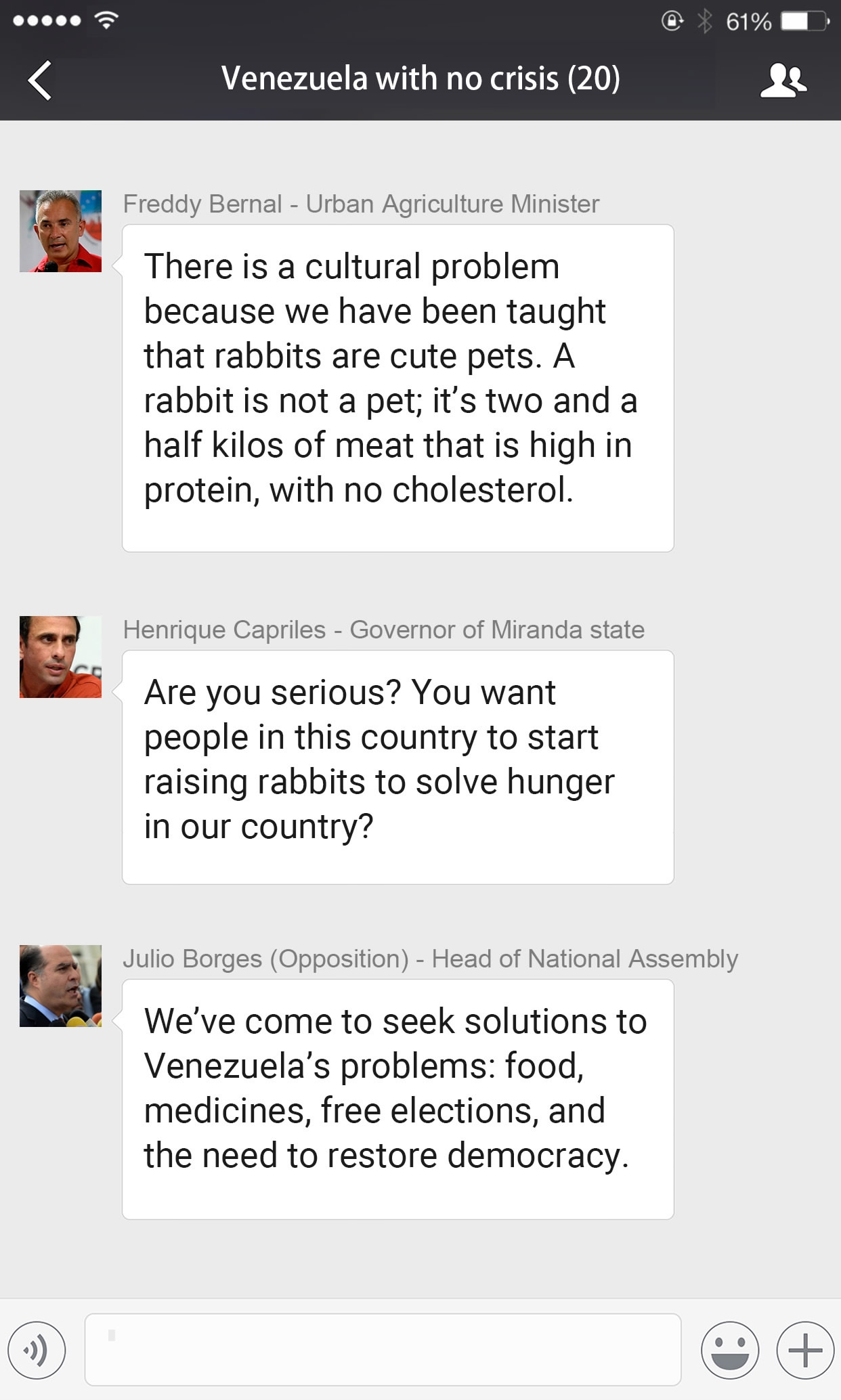
Rabbit dishes are uncommon in Venezuela as bunnies are more likely to be seen on birthday cards or as the mascot of a soccer team.
According to the United Nations Food and Agriculture Organization, the animals are more efficient than pigs and cattle in converting protein into edible meat.
Henrique Capriles, one of the most prominent opposition leader said in a video response, "Are you serious? You want people in this country to start raising rabbits to solve hunger in our country?"
Without a deal again between the opposition and Maduro, the answer might be a "yes."
Threats to ban opposition in Venezuela’s 2018 election
Maduro has announced the opposition parties would be banned from 2018 election as punishment for boycotting the mayoral race on Monday.
Three of the four opposition parties, Justice First, Popular Will and Democratic Action, sat out of the municipal race. The parties who boycotted are no longer part of the political landscape and have no right to vote in the upcoming election.
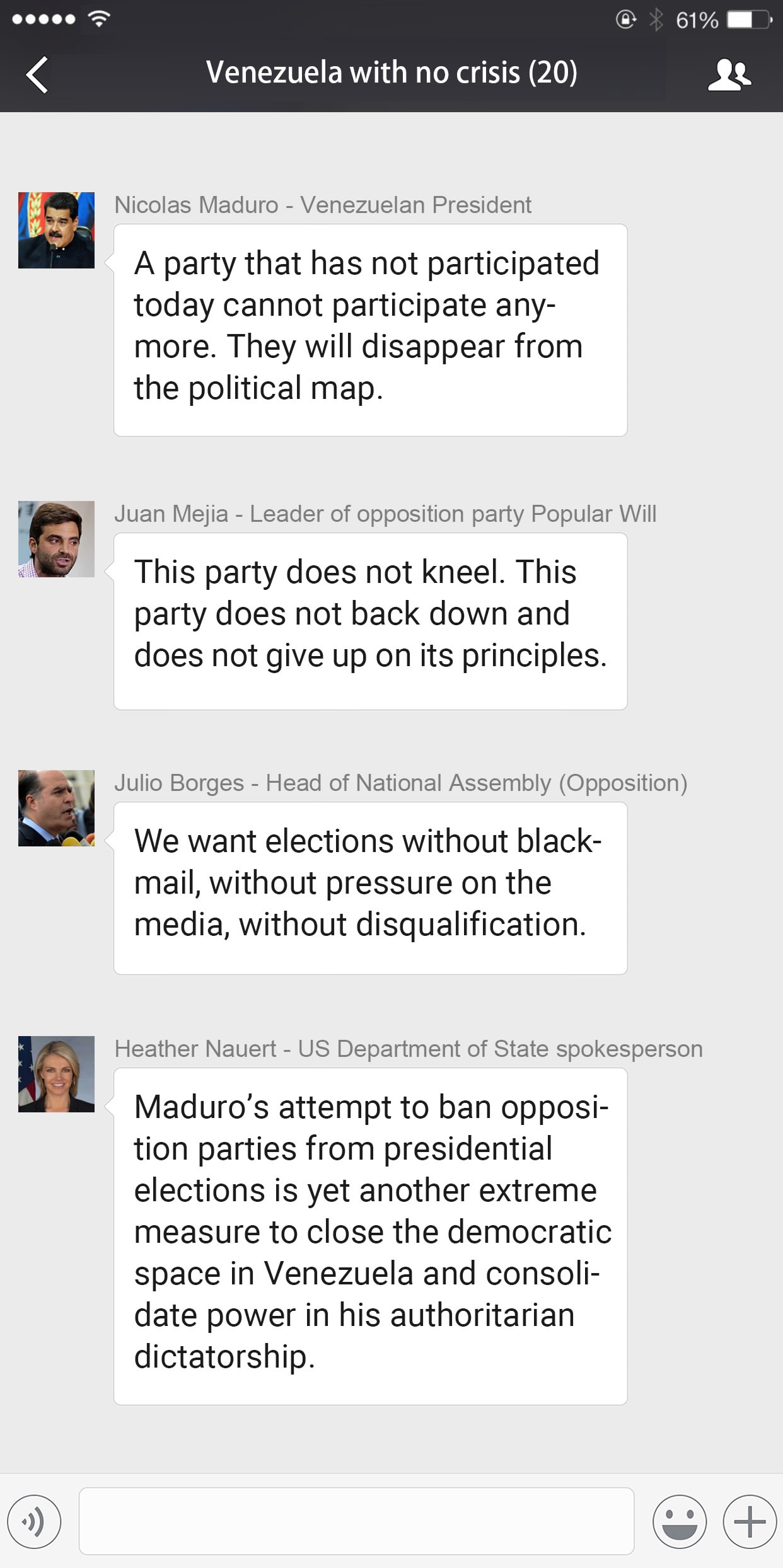
It is believed by the opposition that the government committed fraud to pull off a full victory in a gubernatorial election, meaning several opposition parties are boycotting the negotiation as well as this month’s mayoral race – a move that guaranteed Maduro swept 308 of 335 mayor seats.
Many see that the opposition is in a lose-lose situation by sitting out votes and losing key battlegrounds because mayors are deeply involved in Venezuelans’ everyday life, with rights to issue business permits and collect their own tax revenue. Some major urban centers even run health and education systems and police.
The opposition and Maduro's government look to resume negotiation after the New Year, while many are hoping the talks will restore democracy and bring the country out of a crisis.
13504km

SITEMAP
Copyright © 2018 CGTN. Beijing ICP prepared NO.16065310-3
Copyright © 2018 CGTN. Beijing ICP prepared NO.16065310-3